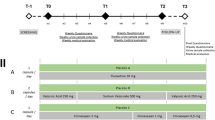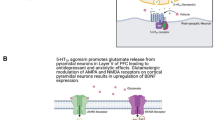Abstract.
Rationale: Although cannabinoid effects on motor function have been extensively studied in rodents, the role of cannabinoids in regulating behavior in primates is relatively unknown. Objectives: We compared the effects of cannabinoid agonists and dopamine antagonists on unconditioned behaviors in cynomolgus monkeys (Macaca fascicularis). We further investigated the therapeutic potential of cannabinoid antagonists in a primate model of Parkinson's disease. Methods: Drugs were administered i.m., and sessions were videotaped and rated by a "blind" observer using a rating scale. Results: The dopamine antagonist haloperidol decreased locomotor activity and increased bradykinesia in three subjects. Haloperidol also produced a dose-dependent increase in freezing and catalepsy in two out of the three subjects. The cannabinoid agonist levonantradol dose-dependently decreased general and locomotor activity and increased bradykinesia. In contrast to haloperidol, levonantradol failed to produce freezing or catalepsy. At the dose range studied, tetrahydrocannabinol did not affect general or locomotor activity, but increased bradykinesia. In view of the psychomotor slowing induced by cannabinoid agonists, we investigated the therapeutic potential of the cannabinoid receptor antagonist SR141716A in an early and advanced stage of 1-methyl-4-phenyl-1,2,5,6-tetrahydropyridine-induced parkinsonism. In both models of Parkinson's disease, SR141716A failed to alleviate the motor deficits of parkinsonism. Conclusions: Cannabinoid agonists do not induce catalepsy in primates, a finding that differs from their effects in rodents. The primate may be more suitable than rodents for predicting the effects of cannabinoids and their therapeutic potential on select primate behaviors.
Similar content being viewed by others
Author information
Authors and Affiliations
Additional information
Electronic Publication
Rights and permissions
About this article
Cite this article
Meschler, J.P., Howlett, A.C. & Madras, B.K. Cannabinoid receptor agonist and antagonist effects on motor function in normal and 1-methyl-4-phenyl-1,2,5,6-tetrahydropyridine (MPTP)-treated non-human primates. Psychopharmacology 156, 79–85 (2001). https://doi.org/10.1007/s002130100728
Received:
Accepted:
Issue Date:
DOI: https://doi.org/10.1007/s002130100728




